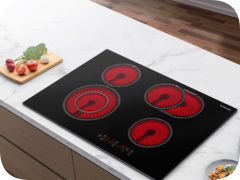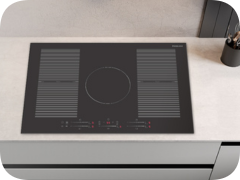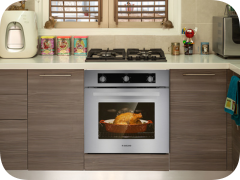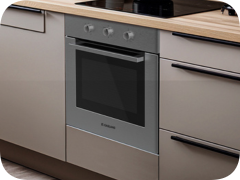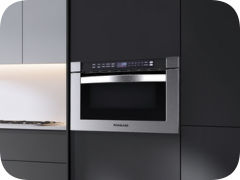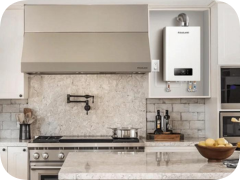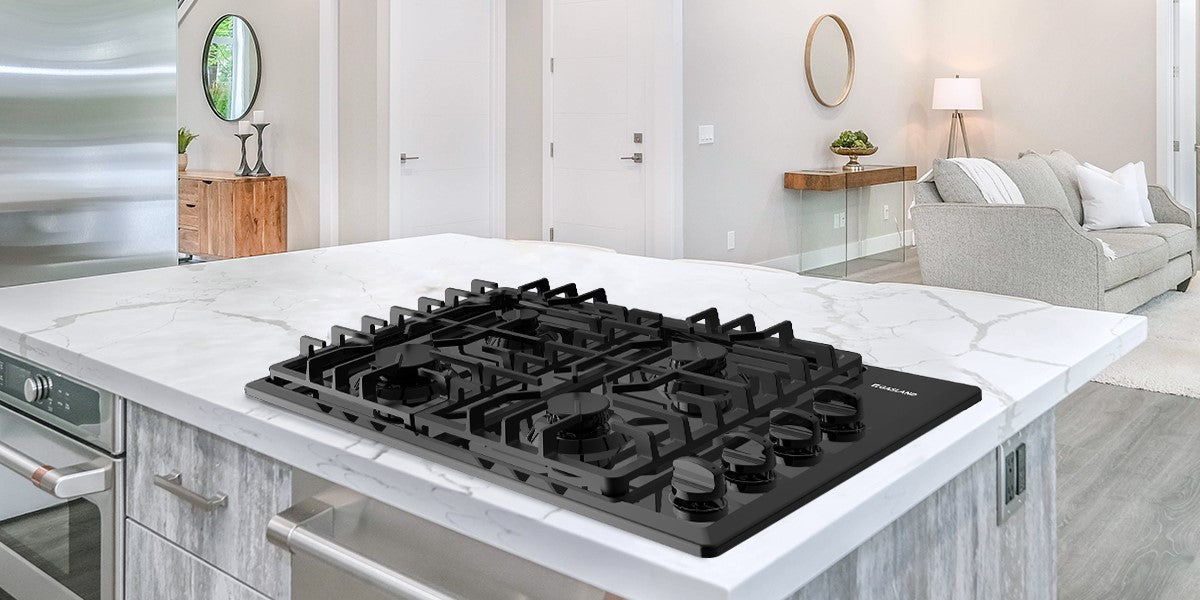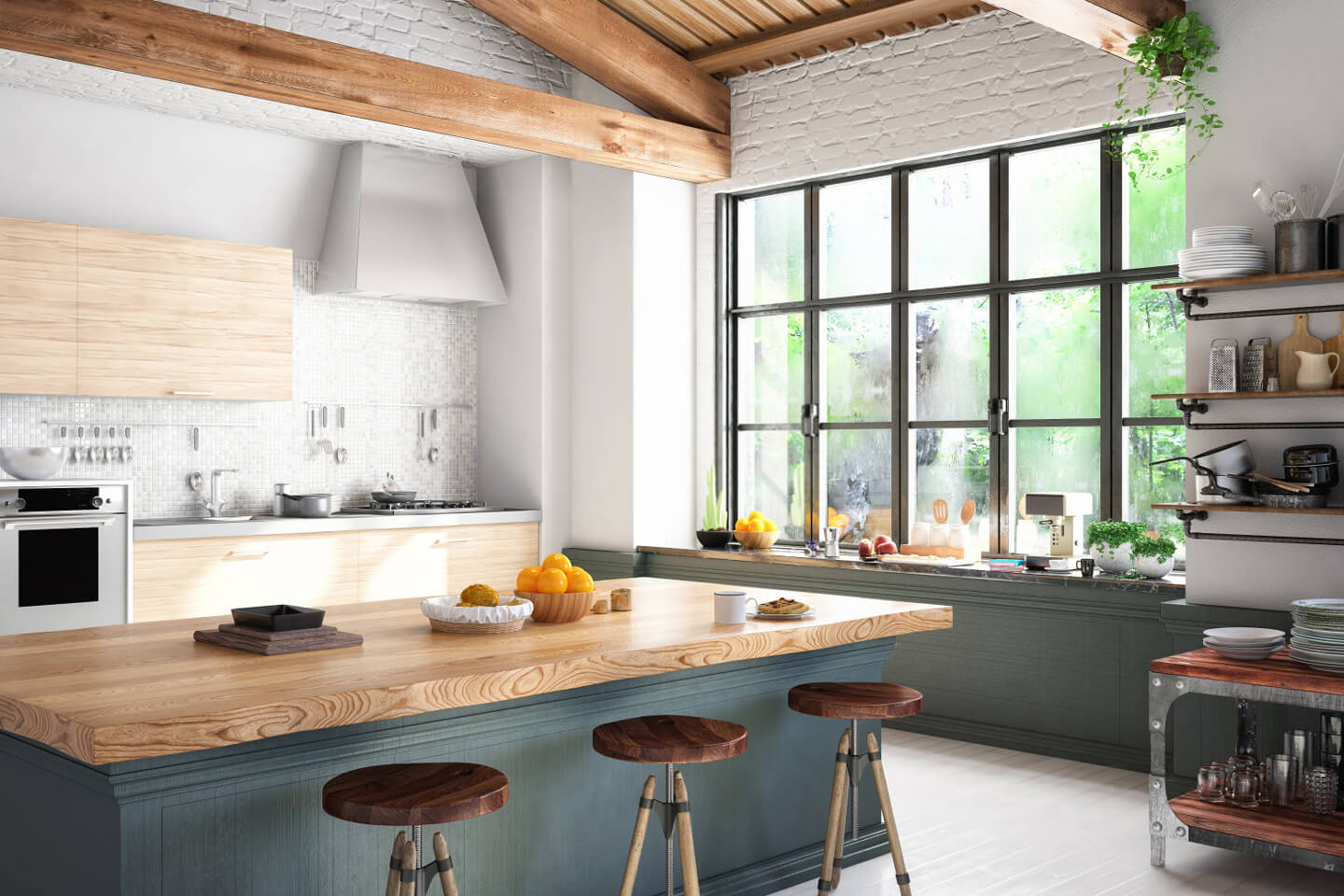Meta Description: Boost energy efficiency with your gas cooktop and learn how to lower your utility bills without sacrificing performance.
Introduction
Gas cooktops are a staple in many kitchens thanks to their quick heating, responsive control, and ability to handle a variety of cooking techniques. But many homeowners still wonder: how energy efficient are gas cooktops? The truth is, with the right habits and appliances, you can significantly reduce gas usage cooking and cut down on monthly expenses. This guide explores practical gas cooktop energy saving tips, efficient burner usage, and smart investments that lead to long-term cost-effective cooking on gas cooktops.
Why Energy Efficiency in Gas Cooktops Matters
Kitchen energy consumption represents a big portion of household utility bills. Unlike electric cooktops, gas models offer flame control that allows for precision cooking—but they can also waste energy if used improperly. Choosing appliances that are designed for sealed burners efficiency and low-BTU cooking makes a noticeable difference.
For instance, high-efficiency cooktops such as the GASLAND MASTER 30" 5 Burner Stainless Steel Professional Gas Cooktop with Griddle provide professional-grade performance while helping eco-conscious cooking households minimize wasted fuel. Investing in these appliances pays off over time by lowering gas bills without reducing cooking quality.
Practical Gas Cooktop Energy Saving Tips
Improving gas stove efficiency doesn’t have to be complicated—it often comes down to daily energy-saving habits:
-
Efficient burner usage: Match the size of your pan to the burner. A small pot on a large burner wastes heat.
-
Gas flame control: A steady blue flame means optimal combustion; a yellow flame signals incomplete burning and wasted energy.
-
Sealed burners efficiency: Prevents spills from clogging jets and ensures consistent heat transfer.
-
Routine maintenance: Cleaning burners regularly reduces blockages that can increase gas use.
For compact kitchens, a great option is the GASLAND 24 Inch 4 Burner Black Enamel Gas Cooktop with Griddle. Its design supports cost per hour gas stove savings by maintaining steady heat output with minimal waste.
Smart Cookware Choices to Reduce Gas Usage
Cookware plays a direct role in how much energy your cooktop consumes:
-
Insulated cookware retains heat, reducing cooking time.
-
Flat-bottom pans maximize contact with the flame for even heating.
-
Using lids speeds up boiling and lowers gas consumption.
-
For simmering and slow cooking, low-BTU cooking settings combined with good cookware ensure both efficiency and flavor.
These small adjustments make cooking more energy efficient without compromising results.
Habits That Lower Kitchen Energy Consumption
Energy efficiency is about lifestyle as much as it is about equipment. Here are some cost-effective cooking on gas cooktops habits:
-
Prepare ingredients in advance to avoid running the burner longer than necessary.
-
Cook multiple dishes at once to maximize each session of burner use.
-
Avoid leaving burners on idle—eco-conscious cooking means using gas only when truly needed.
-
Cultivate energy-saving habits such as lowering heat once food starts boiling.
Even large-capacity cooktops like the GASLAND 30" 5 Burner Black Enamel Gas Cooktop with Griddle can achieve impressive efficiency when paired with good practices, helping households focus on lowering gas bills month after month.
Investing in High-Efficiency Cooktops
If you’re shopping for a new appliance, high-efficiency cooktops are worth considering. Features such as sealed burners, precision gas flame control, and energy-conscious designs allow for significant utility savings. Models like the GASLAND MASTER 30" 5 Burner Stainless Steel Professional Gas Cooktop with Griddle or the GASLAND 24 Inch 4 Burner Black Enamel Gas Cooktop with Griddle balance performance with eco-friendly design, making them ideal choices for households that prioritize both cooking quality and long-term savings.
Common Misconceptions About Gas Cooktop Efficiency
-
“Bigger flames cook faster and save energy.” False—oversized flames waste heat around the cookware.
-
“Small burners are always less efficient.” Not true—low-BTU cooking is highly effective for simmering and slow dishes.
-
“Sealed burners reduce efficiency.” In reality, sealed burners efficiency improves energy transfer while keeping maintenance simple.
Understanding these myths ensures you focus on real ways to save energy in the kitchen instead of relying on common misconceptions.
Conclusion
Improving gas stove efficiency comes down to three things: smart equipment, smart cookware, and smart habits. By practicing efficient burner usage, investing in high-efficiency cooktops, and adopting eco-conscious cooking routines, you can enjoy cost-effective cooking on gas cooktops while lowering gas bills.
👉 Want to know how long your appliance will last? Check out our guide:
How Long Do Gas Cooktops Last? Lifespan Factors and Replacement Tips


